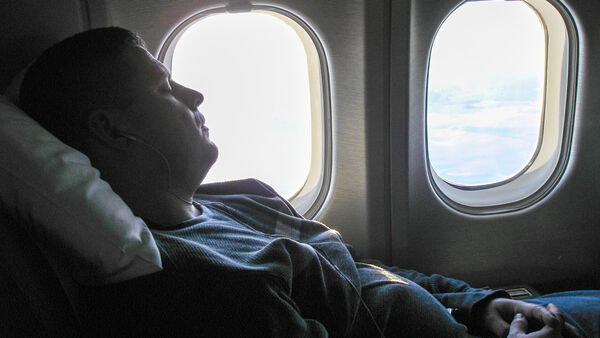
Jet Lag is quite a real thing, yet poorly judged, for many travelers who have to cross more than one time zone. Though this may seem like just an imperceptible nuisance, be assured that jet lag will get the better of you, serving only to minimize the impact of your energy, mood, and, in the end, your journey. The following will outline the basics of what jet lag is and how it exactly matters to the body, besides giving practical advice on how one can prevent it, or at least minimize its consequences during travels.
Definition of Jet Lag
External cues take this biological rhythm majorly brought about by light and darkness. So, when one travels to an entirely different time zone in a very short span of time, his or her body is not able to cope up with the new time schedule; hence, symptoms related to jet lag appear.

Symptoms of Jet Lag Jet lag varies from person to person, but common symptoms include the following:
1. Fatigue and exhaustion: feelings of tiredness, sluggishness, and exhaustion even after having enough rest.
2. Sleep disturbances: unable to sleep at night or wake up too early, or sleep during the day.
3. Inability to concentrate: things are not that clear in the mind, loss of focus, and disturbance in the performance of thinking.
4. Irritability and mood swings: feeling grumpy, frustrated, or emotionally volatile.
5. Upset stomach: constipation, diarrhea, or loss of appetite.
6. Headache/discomfort: headache, body ache, or general feeling of unhealthiness.
These side effects can occur in a range of the day to over a week; it also varies with several factors: the number of time zones crossed, the direction of travel, considering eastward and westward, and how easily your body can adjust to a new time zone.
Jet Lag Happens
Jet lag primarily sets in because of the lack of harmony between your physiological clock and the outer environment of the place where you have shifted. The internal biological clock of the human body is highly susceptible to sunlight exposure and it conveys signals to the brain at what time to sleep and when to stay awake.

Your body stays on your home time when you fly across the time zones, becoming an issue when your destination time becomes light and your body still thinks it’s dark or when your destination time becomes dark, yet your body still thinks it is light. Hard on the body immediately upon arrival, as the difference is so stark, adding to the symptoms of jet lag.
Eastward vs. Westward Travel: One determining factor in the level of jet lag is the direction of travel. Generally speaking, for most people flying east-that is, flying from New York to Paris, for example, worse in terms of jet lag compared with flying west, say from Los Angeles to Tokyo. Traveling east cuts into one’s day and speeds up the schedule your body has to keep while westward travel stretches out the day, giving the body longer to adjust. Tips on How to Minimize Jet Lag Though you cannot avoid jet lag, several ways will enable you to minimize it and recover quickly.
1. Pre-Trip Preparation
How to Prevent Jet Lag The best way to prevent jet lag is to start acclimatizing your body to the travel schedule well in advance of traveling: Try the following:
Gradually readjust your sleeping pattern: A couple of days before flying, go to bed a little bit earlier than usual if you are flying east, or later if you’re flying west. This will start to get your body used to the time difference.
Rest well: Traveling when well rested would decrease the effect of jet lag since your body would not have gone for a long period without sleep or rest.
Stay hydrated: Dehydration can increase symptoms of jet lag, hence take lots of water prior to flying and during flight.
2. Manage Light Exposure
Of all the cues that have helped you set your internal clock; light is one of the important ones. The finer you tune your light exposure, the faster your body will adapt to the time change.
Proceed into natural light: On arrival, expose yourself to the great outdoors in daylight. This will give your body a signal it’s programmed with to mean it’s time to stay awake and kick off its functions in the body.
Light-being used wisely: If someone is trying to stay awake and getting too sleepy, then expose himself or herself to more light – natural or artificial. But if at night at the destination you have to sleep because your body is still at home timing, let it think that it is so with an eye mask or closed curtains.
3. Sleep Smart
During the Flight Sleeping or not at appropriate times on your flight can affect how well you will adjust to your destination’s time zone. For instance,
Nap smartly: If you fly really long-haul, you should nap to avoid sleepiness; otherwise, sleeping too much may interfere with your night sleeping schedule in your arrival city.

Sleeping Aids to be used judiciously: Use over-the-counter sleep aids such as melatonin or sedatives in moderation, and use them under recommendations by a health professional. In particular, melatonin supplementation may provide the clue to a well-regulated sleep-wake cycle when crossing multiple time zones.
4. Immediately adjust upon arrival
Make the adjustment in the new schedule immediately upon arrival.
Stay up until local bedtime: However tired you may feel, try to stay up till a decent bedtime is reached in your new local time. This helps the body adjust faster to the new time zone.
Avoid heavy meals or intake of caffeine: Hefty meals in the night and caffeine consumption near the end may disturb your sleep pattern, further extending jet lag symptoms. Keep it to light meals, avoiding afternoon and evening stimulants.
Get active light exercise: A walk or some stretching, for instance, will help you shake off the fatigue and make you feel charged up along with regulating your internal clock because of the raised stimulants.
5. Use Technology
Jet lag can be very easily fought with the use of technology in today’s time. There are different applications created to alleviate jet lag by offering a personalized schedule that is based on the destination, time of departure, and one’s sleep habits. Such applications advise one on when to sleep or to be exposed to light either before flying to a destination or after arrival. For example, two applications, Time Shifter and Entrain, do apply the principles of the science of circadian rhythm in attempts to overcome jet lag.

When to Seek Medical Care Most individuals’ jet lag will get better on its own in several days as your body naturally readjusts to this new time zone. Continuous or severe inability to sleep excessive sleepiness, or mood changes making functioning a problem might suggest that it is time to see your healthcare provider. Sometimes, sleep disorders, underlying health issues, or anxiety related to traveling is complicating jet lag. Jet Lag can ruin your Unforgettable Vacations.
Conclusion
Jet lag is the inevitable companion of long-distance traveling, but with good preparation and the use of appropriate tactics, it does not have to destroy your holiday. First, understand how one’s body reacts to time zone changes, and take proactive steps to lessen its impact so that full enjoyment of the travel can be achieved. Be it through manipulation of sleep, regulation of light, and travel applications or other implementations of one’s choosing few well-thought adjustments will get you to your destination ready to take on the world, rather than worn out from the journey. Here’s to safe travels and the next adventure, free of jet lag!






